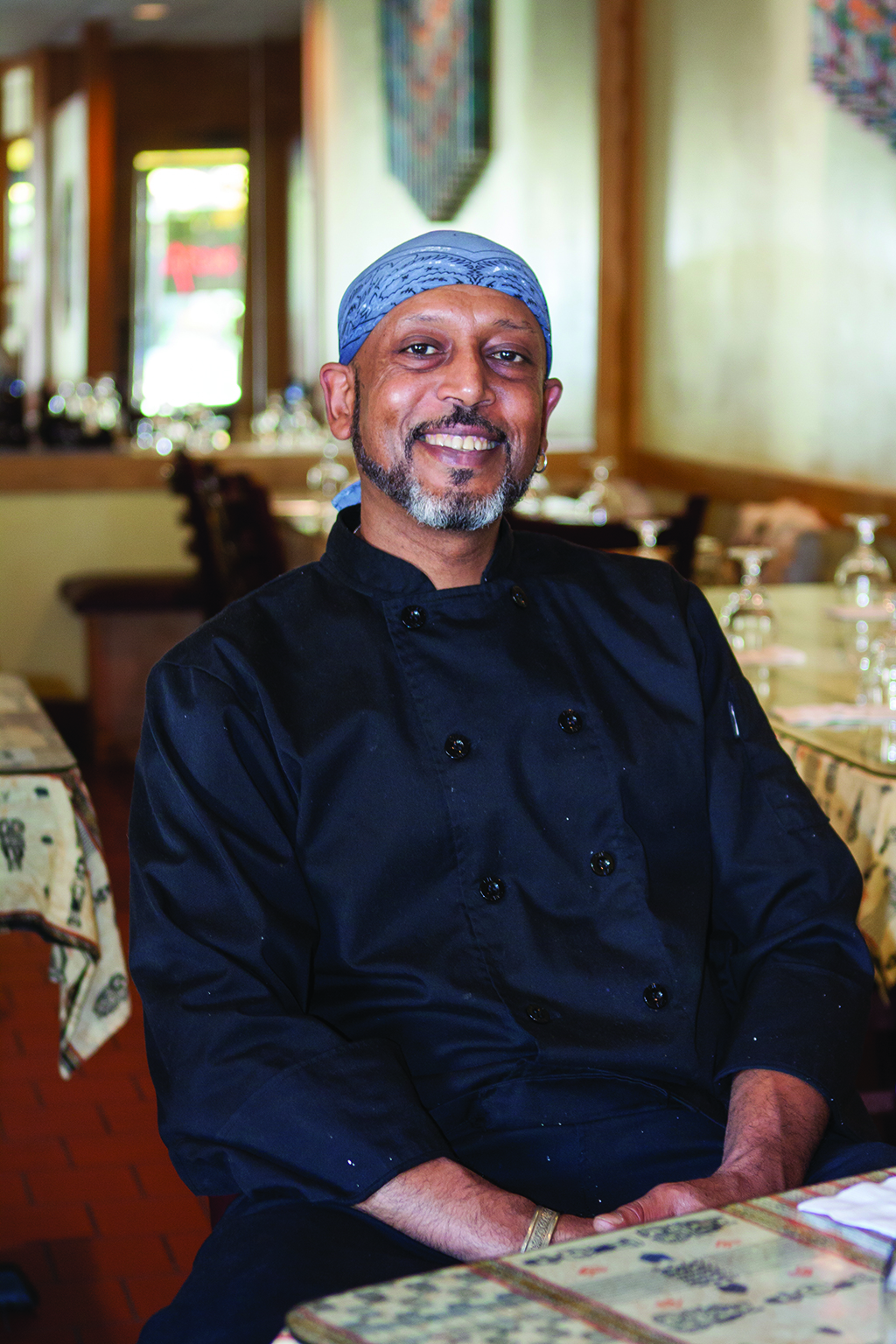“Remember, a single bullet is worth ten lives.”
Demessew Assefa was 10 years old when his grandfather presented him with this golden rule and his first rifle. The Ethiopian Revolution was in full swing and his father had just been executed. Nearly 40 years later, Assefa finds himself as the owner and chef of Addis Abeba, the only Ethiopian restaurant in Evanston, named after Ethiopia’s capital city where Assefa was born and raised.
Demessew Assefa, now 48, descends from a long line of men he proudly calls warriors. He says there was never a day in his childhood when he wasn’t exposed to a weapon of some sort. Assefa believes learning about weapons at such a young age allowed him to develop a better understanding of them.
“Guns can save you, your family, your flag and your country,” Assefa says, his voice clear and deep. His air is surprisingly serene for someone with such a tumultuous background. He leans back in his chair, crossing one long leg over the other. He is a tall man with large hands that he thoughtfully runs across his hairless head.
“People are often horrified when they hear about this aspect of my life. They think I have ulterior motives because of today’s image of guns,” Assefa says. “I get into a lot of debates. But I always come out on top,” he says with a laugh.

Photo by Daniel Schuleman
FROM WAR GUNS TO KITCHEN KNIVES
Fueled by his strong desire to protect, Assefa’s childhood dream was to become a soldier. “For a long time, I thought it was my calling,” Assefa says. “But some godsend type of obstacle always got in the way.”
These obstacles have led Assefa to a profession where he uses his hands just as much as
a soldier would, but in a very different way.
“When I left home, my biggest worry was what I was going to eat,” Assefa says. “So I made sure to bring my spices with me.”
Not surprisingly, one of Assefa’s favorite hangouts as a child was the kitchen. “I was always hungry. I spent so much time in there I picked up on a lot of tricks and eventually acquired my own skills.”
Assefa decided to put his skills to use. He partnered with his cousin and another Ethiopian friend to open Evanston’s Addis Abeba with the goal of exposing traditional Ethiopian food to a wider audience. This, however, was a more difficult task than Assefa had hoped. Most people have no idea what Ethiopian food is all about, so it was challenging to attract customers at first.
“When the restaurant first opened, you would hear certain comments,” Assefa says. “Mostly along the lines of, ‘Oh wow, an Ethiopian restaurant! I wonder what they’re serving — some water and sand?’”
FROM ETHIOPIA TO EVANSTON
Assefa says it is important to introduce Ethiopian culture to people who know nothing about the country and its food. As we speak, the warm aroma of yessiga wot and injera (beef stew with traditional Ethiopian bread) lingers in the air. The basics of Ethiopian cuisine are meat, vegetables and grains, and the most vital ingredient is onion, which is found in almost every Ethiopian dish. Assefa says Ethiopian food is different from other African cuisines because it uses a wider variety of spices and utilizes many Middle Eastern and Indian cooking techniques. Addis Abeba speaks to the traditional Ethiopian customs that Assefa brought back from his birthplace. Food here is served in colorful mesobs, which are hand woven wicker baskets, and the walls are covered in paintings of characters with large, round eyes, a common characteristic of Ethiopians, according to Assefa.
“He’s a wonderful chef,” boasts Endalkachew Haile-Mariam, Assefa’s partner and cousin. “He really does bring a taste of Ethiopia to the area.”
Assefa now lives in Chicago with his 18-year-old daughter, Almaz, which means diamond in Amharic, Ethiopia’s official language. “Almaz is adamant about being Ethiopian, even though she’s never been to my country,” says Assefa, with a touch of fatherly pride in his voice. “I can’t wait to bring her there.”
1322 Chicago Avenue (847) 328-5411

